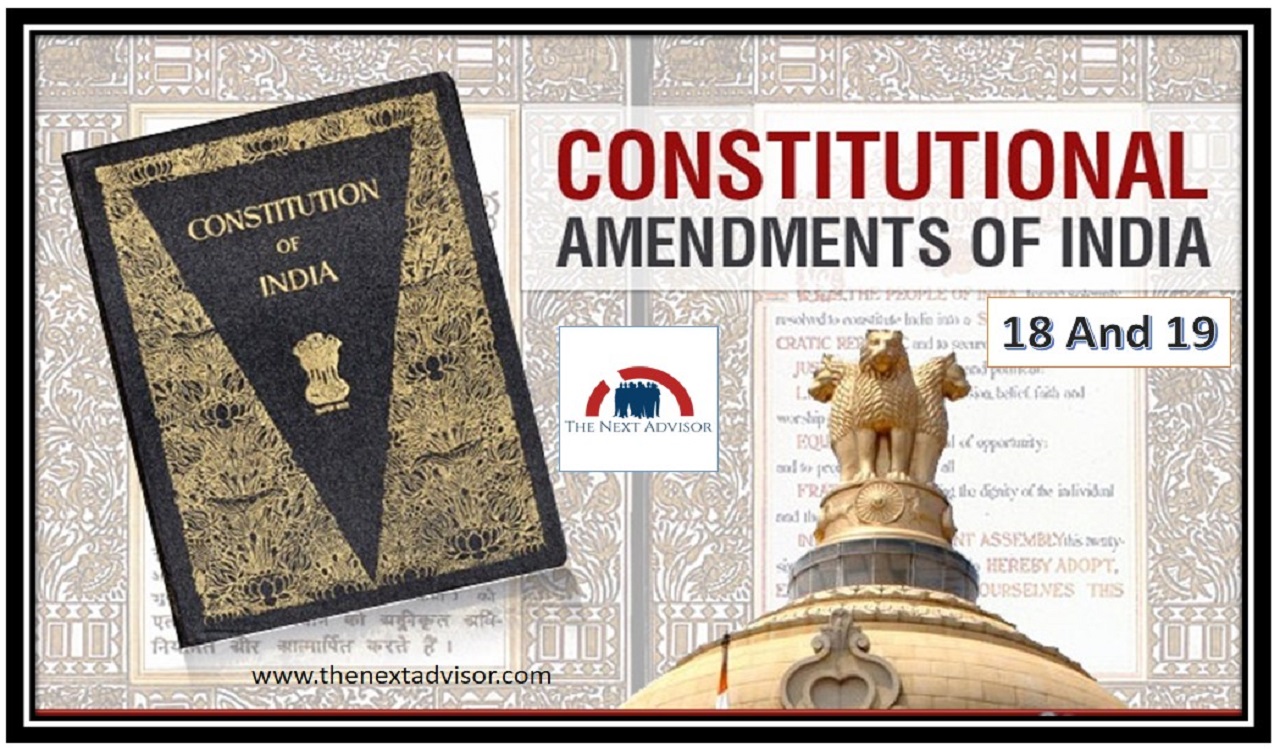Constitutional Amendments 18 And 19
00Statement of objects and reasons –
Article 3 of the constitution provides for the formation of new states and the alteration of areas, boundaries, or names of existing states. It is considered proper to amend this article to make it clear that “State” in clauses of that article includes “Union territories”. It is also considered proper to make it clear that power under the clause of article 3 includes the power to form a new State or Union territory by uniting a part of a state or union territory to another state or union territory.
Eighteenth Amendment Act, of 1966 –
Made it clear that the power of parliament to form a new state also includes the power to form a new state or union territory by uniting a part of a state or a union territory to another state or union territory. It created new states namely, Punjab and Haryana.
Statement of objects and reasons –
One of the important recommendations made by the election commission in its report on the third general elections in India in 1962, and accepted by the government relates to the abolition of election tribunals and trial of election petitions by High courts. If the proposal for legislation to amend the representation of the People Act, 1951, containing, inter alia, provisions for the trial of election petitions by High courts instead of the election tribunals, as at present, is accepted by parliament, it would be necessary to make a minor amendment in the clause of article 324 of the constitution to delete therefrom the words. Including the appointment of election tribunals for the decision of doubts and disputes arising out of or in connection with elections to parliament and the legislatures of States”.
18th amendment – Prohibition
The conservatism and the fast times of the 1920s had to clash at some point. That point turned out to be alcohol. Many Americans saw alcohol as evil, to others it was a part of life. The conflict over the use of alcohol, known as Prohibition, provided one of the more colorful periods in American history. In December 1917 Congress adopted and submitted to the states the Eighteenth Amendment, known as the Prohibition amendment, which prohibited the “manufacture, sale, or transportation of intoxicating liquors.” Ratified by the states in January 1919, it went into effect on January 20, 1920. Congress also passed the National Prohibition Enforcement Act, known as the Volstead Act, that defined an intoxicating beverage as any beverage containing more than one-half of one percent (1 proof). The law also gave the Bureau of Internal Revenue enforcement authority.
So friends this was the detailed information about the Constitutional Amendments 18 And 19.

























